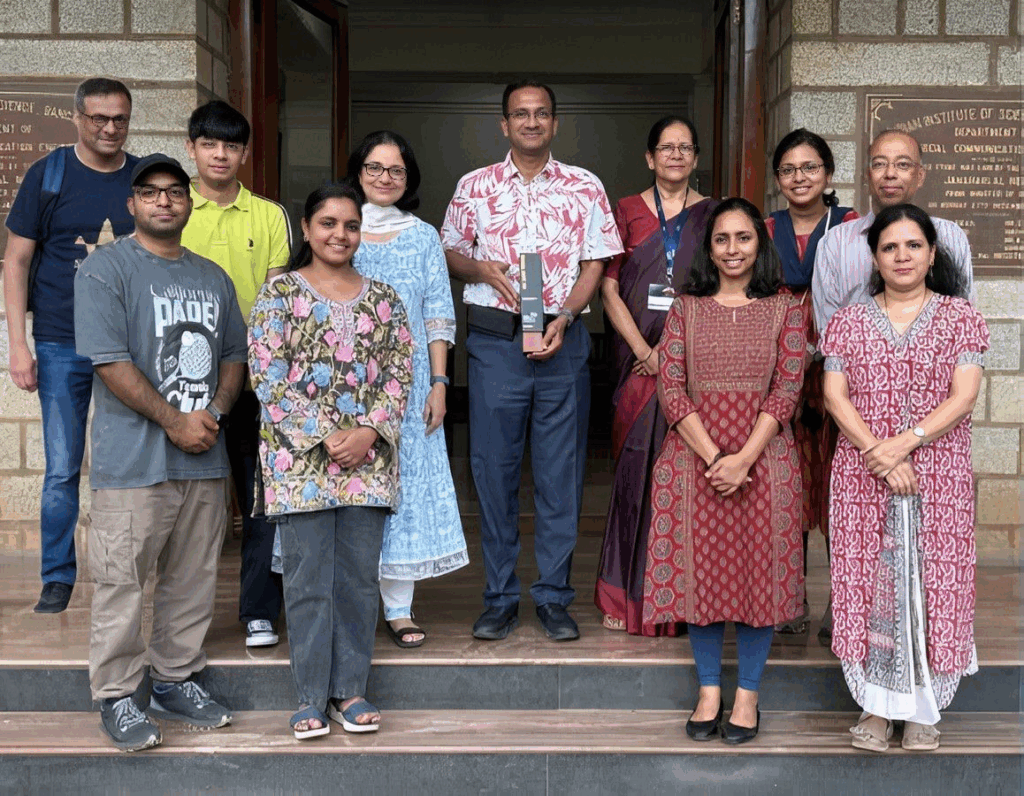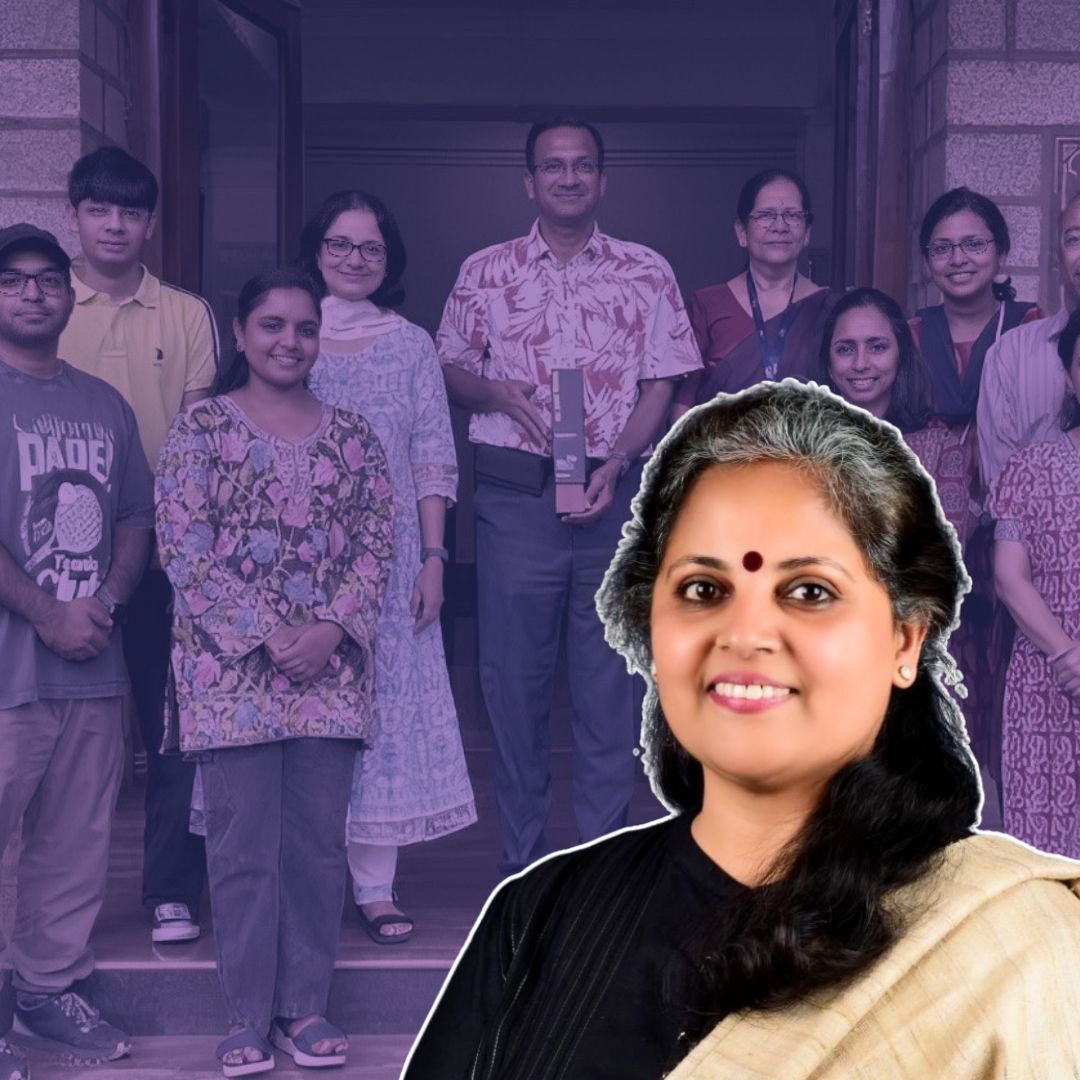Dr Anupama Shetty’s journey as the Mission Director of Biocon Foundation unfolds as a story of dedication, innovation, and systemic impact spanning over two decades.
Trained as a physician with a Bachelor of Medicine and Surgery from Mysore University, she further honed her expertise with a Master’s in Hospital Administration from the Tata Institute of Social Sciences (TISS).
Adding to this solid healthcare and management foundation, she completed executive education in Corporate Social Responsibility (CSR) from Harvard Business School in 2015, equipping her with global strategic insights to lead complex social initiatives.
My journey has always been about blending scientific rigour with compassion to reach those who need it most, Dr Shetty says. Starting from hands-on healthcare administration, she now leads transformative CSR programs that have touched nearly three million lives in India.

A Journey Defined by Impact and Learning
Dr Shetty’s career trajectory includes pivotal roles in healthcare operations and research, such as her tenure at PD Hinduja Hospital in Mumbai and over four years as a research scholar at TISS. She undertook her doctorate focusing on strategic change and patient safety culture, paving the way for a systemic view of healthcare delivery.
The strategic education at Harvard Business School further expanded her perspective to include innovative CSR leadership, enabling her to merge corporate resources with societal needs effectively. Executive education at Harvard gave me a global perspective on how to structure CSR as a catalyst for sustainable change, she explains.
Under her guidance, Biocon Foundation has spearheaded initiatives like Arogya Raksha Yojana, a microinsurance scheme that has covered over 1,600 surgeries, and mobile oral cancer screening programs reaching 85,000 high-risk individuals annually.

Innovating Through Community-Centric Collaboration
Dr Shetty stresses that technology alone cannot sustain social initiatives; it must be combined with active community engagement and partnerships.
Biocon Foundation’s collaboration with the Indian Institute of Science (IISc) led to the Oral Cancer Task Force (OCTF), which uses AI-driven diagnostics to enhance early detection in rural and underserved areas. “Our programs succeed because they are co-created with communities, government, and scientific bodies,” she notes.
Besides health, education is a priority, exemplified by BioWISE an initiative launched in 2025 to empower women from tier 2 and 3 universities in STEM fields. The foundation also invests in improving government school infrastructure in Bengaluru’s rural districts, creating safe and enabling environments for learning.
Milestones Reflecting Sustainable Change
Celebrating 20 years in 2025, Biocon Foundation’s accomplishments span healthcare innovation, environmental restoration, and social empowerment. Its eLAJ Smart Clinics program has logged nearly one million patient visits, providing accessible primary healthcare.
Environmental projects include the revitalization of Hebbagodi and Yarandahalli Lakes and the planting of Miyawaki forests, which restore biodiversity while fostering community stewardship.
The foundation has also provided flood-resilient housing, addressing climate change-induced challenges faced by vulnerable populations. Dr Shetty underscores, “Our work focuses on scalable and measurable impact, so initiatives can be refined and expanded for greater reach.”

Leadership That Marries Empathy with Strategy
Dr Shetty advocates for CSR as a strategic driver of societal transformation rather than a mere compliance exercise. She states, CSR should catalyse ecosystems of change that integrate business, society, and environment.
This philosophy has led Biocon Foundation to co-author white papers and policy recommendations with top research institutes shaping national health policy. Her leadership exemplifies the power of integrating empathy with data-driven strategy to foster sustainable community development.
The Logical Indian’s Perspective
Dr Anupama Shetty’s educational journey, grounded in medicine, administration, and executive leadership at Harvard Business School, highlights the importance of lifelong learning in shaping impactful CSR leadership. Her work exemplifies how rigorously designed, technology-enabled, and community-centric CSR initiatives can create systemic change.
The Logical Indian urges more corporations to emulate such approaches that balance business imperatives with social equity and environmental stewardship. In an era marked by complex social challenges, how can communities, businesses, and policymakers collaborate better to ensure CSR moves beyond philanthropy to scalable social transformation?
If you’d like us to feature your story, please write to us at csr@5w1h.media












